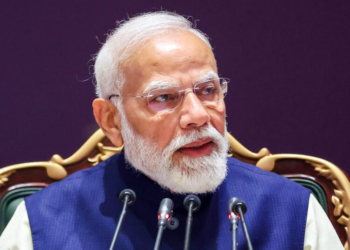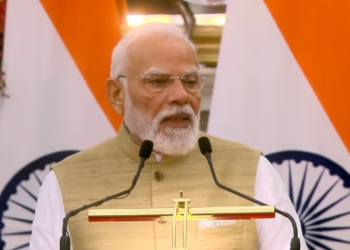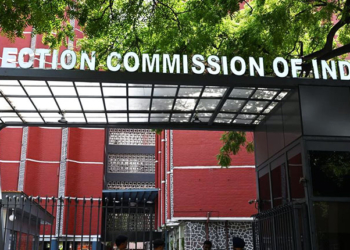New Delhi: Solicitor General Tushar Mehta on Monday told the Delhi High Court that the Centre intends to file a review petition against a recent Supreme Court decision in the case of Pankaj Bansal & Ors. vs. Enforcement Directorate making it mandatory for the agency to disclose the grounds of arrest as a matter of course in money laundering cases.
Mehta’s argument came up during a hearing of petitions before the bench of Justice Tushar Rao Gedela filed by NewsClick founder-editor Prabir Purkayastha and Human Resources head Amit Chakravarty challenging their arrest in a case lodged under the provisions of the Unlawful Activities (Prevention) Act (UAPA).
The Supreme Court had ruled on October 3 that it is mandatory for the ED to disclose the grounds of arrest as a matter of course in money laundering cases.
Senior Advocate Dayan Krishnan, representing Purkayastha, cited the Supreme Court’s judgement to argue that the failure to provide grounds of arrest violates Article 22(1) of the Constitution.
To this, Mehta contended that there is a distinction between the provisions of the Prevention of Money Laundering Act (PMLA) and the UAPA. He pointed out that the Supreme Court’s ruling was specific to a PMLA case and that the arrests in the NewsClick case took place on the same day the apex court issued its ruling.
He also contended that the Delhi Police were not a party to the Pankaj Bansal case.
Mehta highlighted that the Supreme Court’s judgment was uploaded on its website on October 4, one day after the arrests in the NewsClick case were made.
The high court reserved its order on pleas of Purkayastha and Chakravarty.
The Delhi Police’s Special Cell had arrested Purkayastha and Chakravarty on October 3, and the next day, they were sent to seven-day police custody by a Delhi court.
Last week, the court had asked Mehta: “Mr. Mehta, tell us… The remand order, there appears to be something which is missing there… and the counsel was not heard.” The court also told Mehta that the grounds of arrest were not disclosed in the remand application.
“Apparently, in the remand application, you don’t disclose the ground of arrest. Today, there is a Supreme Court judgement which is staring in the eye,” the court said.
(IANS)















